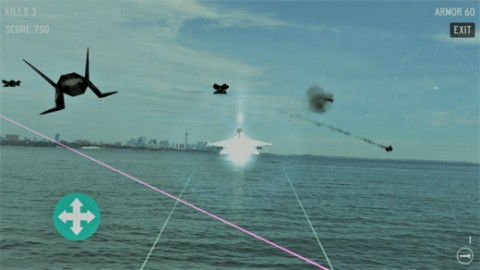Understanding Combat AR: A Comprehensive Guide

Combat AR, short for Combat Augmented Reality, is a cutting-edge technology that is revolutionizing the way we perceive and interact with the world. This article delves into the various aspects of Combat AR, providing you with a detailed and multi-dimensional understanding of this fascinating technology.
What is Combat AR?

Combat AR is a subset of augmented reality (AR) technology that is specifically designed for military and tactical applications. It overlays digital information, such as maps, enemy locations, and tactical data, onto the real-world environment, providing soldiers with real-time, actionable information.
How does Combat AR Work?

Combat AR systems typically consist of a head-up display (HUD), a pair of AR glasses, or a smartphone with AR capabilities. These devices use sensors, such as cameras, GPS, and accelerometers, to track the user’s position and orientation in real-time. This information is then used to overlay digital data onto the user’s field of view.
| Component | Description |
|---|---|
| Head-Up Display (HUD) | Displays critical information, such as enemy locations and tactical data, in the user’s field of view without requiring them to look away from their surroundings. |
| AR Glasses | Provide a hands-free, heads-up display experience, allowing soldiers to stay focused on their environment while accessing important information. |
| Smartphone | Can be used as a portable AR device, providing soldiers with access to real-time information and maps. |
Applications of Combat AR
Combat AR technology has a wide range of applications in military and tactical scenarios:
-
Target acquisition and tracking
-
Navigation and route planning
-
Communication and collaboration
-
Training and simulation
Benefits of Combat AR
Combat AR technology offers several benefits to military and tactical operations:
-
Improved situational awareness
-
Enhanced decision-making capabilities
-
Increased safety and efficiency
-
Reduced training time and costs
Challenges and Limitations
While Combat AR technology offers numerous benefits, there are also challenges and limitations to consider:
-
Cost and complexity of implementation
-
Privacy and security concerns
-
Reliability and accuracy of data
-
Integration with existing systems
Future of Combat AR
The future of Combat AR looks promising, with ongoing research and development aimed at improving the technology’s capabilities. Some potential advancements include:
-
Increased resolution and field of view for AR glasses
-
Improved tracking and localization algorithms
-
Integration with other technologies, such as artificial intelligence and machine learning
-
Expansion into civilian and commercial applications
In conclusion, Combat AR is a powerful and versatile technology that has the potential to transform military and tactical operations. By providing soldiers with real-time, actionable information, Combat AR can improve situational awareness, enhance decision-making capabilities, and increase safety and efficiency on the battlefield.
